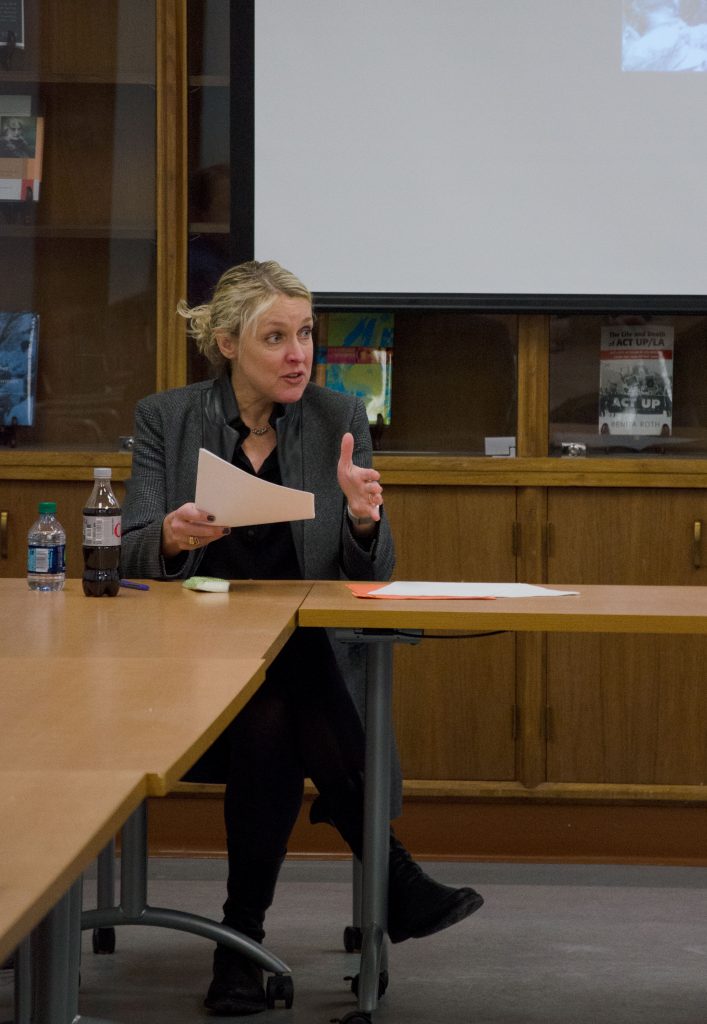
At the start of the semester, the Binghamton University Human Rights Institute opened its doors to students and faculty looking to examine issues such as human trafficking, capitalism and religion.
The institute was created by the Citizenship, Rights and Cultural Belonging Transdisciplinary Area of Excellence (TAE), a new method of hiring faculty and supporting research initiated by the University in 2013. The process applies the perspectives of faculty from different disciplines to a specific topic. The proposal for the institute was submitted last semester and was approved by the Office of Academic Affairs. Provost Donald Nieman said the proposal was well-written and included faculty from different disciplines.
“It was a strong proposal that drew on the expertise of outstanding faculty from a half dozen departments, promised to facilitate collaboration among these faculty, and enhance Binghamton University’s reputation in an important area,” Nieman wrote in an email.
The institute aims to develop University-based research, teaching and community engagement in international human rights issues. The projects are led by David Cingranelli, the founding director of the institute and a professor of political science, and Alexandra Moore, the associate director and a professor of English.
“[The institute’s] goal is to promote faculty research in human rights, to develop ways to bring faculty research to bear on public policy and to create opportunities for students,” Moore said.
According to Nieman, funding for the institute comes from the TAE, which will provide a small budget for research and speakers. Nieman also anticipates that the institute will garner support from foundations and other funding organizations as it grows.
Currently, the institute has six working groups, or research teams, stemming from proposals by BU faculty and comprised of faculty and graduate students. This semester’s groups include an Anti-Trafficking Project, Human Rights Pedagogies and Capitalism and Human Rights.
For undergraduates and other members of the community, the institute also offers a series of lectures by professors from other universities to showcase their work in human rights fields. Some lectures offer discussions on their work and conversations for educators on how to teach human rights.
In the future, new programs may include a human rights minor and a freshman immersion program. If it is approved by Harpur College, the human rights minor could be available as early as fall 2018.
The immersion program, modeled after the current Freshman Research Immersion program, will introduce a social science stream for first- and second-year undergraduate students pursuing a variety of majors. If approved, students in the program would take a core human rights course and then start assisting work groups with research.
“[The streams] only exist right now in the STEM disciplines,” Cingranelli said. “If approved, it would be the first in the University that is not in STEM.”
The institute also collaborates with student organizations including Democracy Matters, Partners in Health and Peace Action. These groups are invited to all functions, including the work groups, and will have access to internships along with the rest of the student body. According to Moore, the institute plans to partner with more student groups to sponsor future events.
The institute will be holding their First Annual Human Rights Institute Conference on Monday, Apr. 9 from 9:30 a.m. to 6 p.m at Columbia University. The conference will include keynote speaker Larry Siems, chief of staff at the Knight First Amendment Institute and a writer, who will speak about accountability in human rights.


